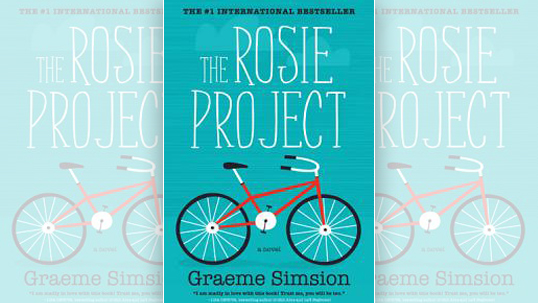Author: Graeme Simsion

Graeme Simsion’s The Rosie Project is about genetics Professor Donald (Don) Tillman’s troubles building romantic relationships with women, as he has an Autism Spectrum Disorder (ASD). As a result, he creates a questionnaire for women to complete and based on their answers determines who he dates. Don’s best friend, Gene, a psychology professor, arranges for a PhD student, Rosie, to complete the questionnaire in which Don deems “unsuitable”, but sets them on a date anyhow. Don ultimately becomes intertwined with her search for her biological father, and it is through this search that they fall in love with one another, despite being complete opposites. However, they struggle with their feelings for the other because Rosie strongly believes Don is unable to feel love, as traditionally thought and understood about folks with ASD. Meanwhile for Don, all of these emotions are unfamiliar and new, thus he grapples with who he is, how he is, and the changes that he does and/or does not need to make to have a successful relationship.
One immediate thing the reader learns about the representations of education is that people with an Autism Spectrum Disorder are more than capable of recognizing and feeling their own emotions as well as being compassionate and considerate of others. One characteristic of people with ASD is that they can be high achievers, and Don achieves a highly respected profession, despite his family background alongside his sister’s death. But, most interestingly, the world of academia is not where the reader, Don or Rosie require learning. It lies in Don not knowing and understanding why he is following through with the Father Project. He just knows that he wants to.
Gene, Gene’s wife, Claudia, and Rosie are the three main people in Don’s life in which he learns about love. This is imperative to note because it demonstrates that while Don obtained his professorship by studying for and passing examinations, achieving high marks on assignments and completing distinctive research, there is no textbook that he can learn from to succeed in romantic relationships. He learns about love differently and is able to establish his own textbook through the way each individual lives their lives, their insights and the numerous conversations he has with them throughout the novel. It is through Don’s willingness for self-improvement that he musters up the courage to tell Gene to grow up regarding his infidelities, is able to watch all of the romance movies Claudia suggested, analyze his trip to New York City with Rosie, along with learn to adjust how he speaks in certain social situations. These efforts are how he is able to recognize that the best days in his adult life have been with Rosie, and how to have a successful relationship with her in which she feels he loves her. All of the knowledge that Don has about genetics only takes him so far, and while he searched for someone with big earlobes in the questionnaire, for example, it is not needed for him to love Rosie.
In the end, Don realizes that he broke all of the rules at his workplace for the Father Project, as well as: “[my] focus on self improvement meant that I had little time to consider and respond to the Dean’s threat of dismissal” (278). These are not actions he would typically take, but he did not care because he deeply cared for Rosie. This novel is a testament to the fact that folks with ASD are more than capable of having loving relationships, they simply need support and understanding because the willingness to grow is inherently present. Another important moment is when Don is speaking to his family on the phone and his brother implies that he is gay because he has never been in a relationship with a woman. This reveals to me that his brother has very limited understanding of Don’s ASD experience because he has no idea the challenges his brother faces emotionally and evidently, the lack of support he received and receives from his family when it comes to understanding relationships. “...when you realise you want to spend the rest of your life with somebody, you want the rest of your life to start as soon as possible” (297). This massive recognition is possible to be made because of his conversations with loved ones and acquaintances, and through seeing people live their lives. He is accustomed to the world of academia, and none of this can be found and learned there. To end, the representation of education that is presented in Graeme Simsion’s The Rosie Project is learning about how one individual who has Autism Spectrum Disorder becomes educated in romantic relationships.
The review goes here
